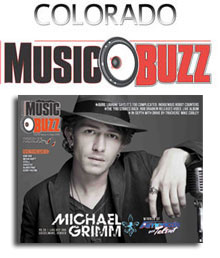The Manager’s Corner
by Chris Daniels
I’ve managed my own band since the 1980s and despite the amazing change in technology, success in the music business is built around four tried and true elements: great music, really hard work, and timing (often mistaken for luck). The other key element is getting the help you need to make that luck happen. These days that help is everywhere. The book I wrote for my CU Denver class on artist management is called “DIY: You’re Not in it Alone” and that is exactly what you need to understand. You need to make the most of the tools that are out there.
Last month’s article dealt primarily with the sale of recordings as a revenue stream. For working musicians, as opposed to ‘stars,’ survival as a musician usually consists of cobbling together a set of skills with a set of matching abilities, and the market places need for them. For many, the most profitable area is still live performance, followed closely by merch. If you work hard and are lucky, you might add in licensing (for your master and publishing to TV films and commercials), sponsorships, and endorsements, from products like guitars, to band sponsorships with PA or booze companies, and other areas you might explore, like teaching, acting, producing, etc.
This month I’m focusing on publishing of all sorts. First, you need to understand that publishing does not just mean that single sheet or folio of sheet music and tab that came out with your record, but that it means all the various ways in which your song is ‘used’ in public. If you were signed to a small boutique label, they might not pay you for the ‘use’ of your songs on the master recording they make of your songs (even though they are supposed to pay you the statutory rate of 9.1 cents per song on the CD or downloaded album). But any established label will do that, or give you a ‘rate’ that might work out to 75% of that basic level of compensation.
There are a number of additional revenue streams you and your publishing company should go after. They include ‘use’ of your song by other artists (“covers” of your song), use of your song in a visual medium, such as TV, film, commercials, or internet ‘synchronized’ broadcast (webisodes or internet commercials etc.), use of your song in any kind of jukebox format (including as a karaoke track), use of your song in a play or musical (dramatic), use of your lyrics as part of a published document (a collection of poetry), and use of your song in video games. All of these applications involve you receiving money for those forms of “use” that should be paid to you and your publishing company.
There are a number of popular web-based ‘song pluggers’ like Taxi that you can sign up for (be careful, some are expensive with limited results), and there are internet ‘shopping’ service companies that specialize in presenting your songs to many of these various outlets. They all have mixed results because of the sheer numbers of songs that are being ‘pitched’ in this era of home studios and composers.
Whether you use one of these services, or you decide to shop your music to a legitimate publishing house like Bug Music in Nashville, or Warner/Chappell or Universal Music, I strongly suggest you set up your own publishing company first. It’s relatively easy to do but there are some essential steps you need to take:
1) Do a name search with any of the large Performing Rights Organizations (BMI, ASCAP or SESAC) and the Internet to see if the name is available. 2) Establish that name with the Secretary of State’s office as a business. 3) Open a bank account or get a DBA addition to your account for checks that are made out to that company name (John Doe Publishing Inc.). 4) You, as a writer, should affiliate with one of the three PROs. Each one has advantages, and I can’t honestly tell you why you should go with one or the other. I went with BMI for my own reasons, but you should Google them and look at the requirements to join, and what they offer, and make up your own mind. 5) You should affiliate your publishing company with the SAME company that you are with. The cost and requirements vary, but in my case, I’m a BMI writer and my publishing company is also affiliated with BMI. What that means is that when I co-write a song with somebody who is signed to a major (I’ve written songs with Al Kooper, Gary Nicholson, who writes for Delbert and Bonnie Raitt, Davis Bromberg, Bill Payne and many others), I receive checks for the use of those songs as a songwriter AND as a publisher (the songwriter and publisher’s share – usually a 50/50 split of the royalties). And when I’ve signed co-publishing deals with a major company that is going to push my song, I still get my writer’s share (50%), PLUS a percentage of the publishing share that I split with the major publisher.
This is real ‘mailbox’ money, and worth the effort it takes to learn more about it and to set up your own publishing company. If you wonder why any if the great songwriters you can think of are doing pretty well while members of the bands they were in don’t seem to share in that prosperity, it’s primarily because of the difference in the publishing revenue stream, which for some writers ends up being a sort of retirement fund. Whatever you do, don’t overlook this essential revenue stream for your music!
Chris Daniels
Category: The Post







Good stuff Mr. Daniels, thanks